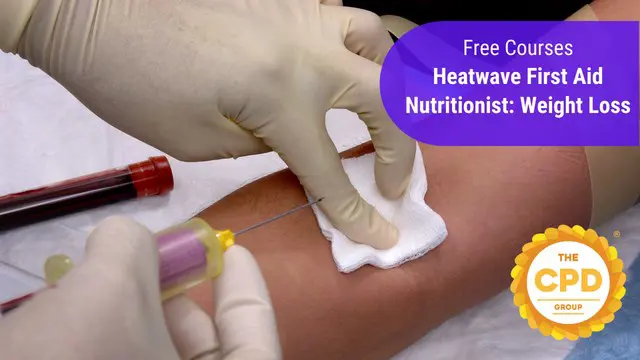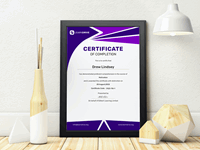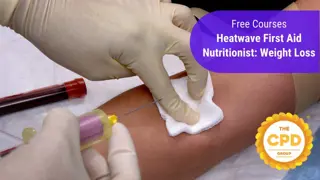
Phlebotomy: Skilled Blood Draws & Sample Processing
Get Certified in 02 Hours | Include Free Certificate & Tutor Support
Learndrive
Summary
- Certificate of completion - Free
- Exam(s) / assessment(s) is included in price
- Tutor is available to students
Add to basket or enquire
Overview
[ Updated 2023 ]
Have you ever thought about becoming a Phlebotomist? You will be making a decent and consistent salary as a phlebotomist. A phlebotomist in the UK makes, on average, £20,257 a year. Phlebotomy as a profession can help you be versatile when discussing the various environments you could work in. An inpatient hospital unit, an outpatient hospital unit, infusion facilities, etc., are a few examples of these settings.
The act of taking blood using a needle from a vein, usually in the arm, is known as phlebotomy. The purpose of this vital technique, also known as a blood test, is to diagnose a variety of medical conditions.
You must have a thorough understanding of Phlebotomy to practise as one. You will learn how to perform phlebotomy step-by-step in this course so that you may master it.
By the end of the Phlebotomy course, you will be sufficiently self-assured while dealing with processes for blood preparation and collection, as well as labelling and storage.
Enrol Now!
Certificates
Certificate of completion
Digital certificate - Included
Course media
Resources
- Course Syllabus of Phlebotomy Training - download
Description
Phlebotomy Course Coverage
Phlebotomy Course Introduction: Gain an understanding of phlebotomy, the role and training of phlebotomists, and explore typical workplace settings.
Phlebotomy and Venipuncture: Unveil the purpose, steps, and potential risks of venipuncture, distinguishing between phlebotomy and venipuncture.
Anatomy in Phlebotomy: Explore the anatomy and physiology relevant to phlebotomy, focusing on the body's vessels, vein layers, heart anatomy, and nerves.
Choosing Veins in Phlebotomy: Learn about the antecubital fossa, vein selection, complications in arterial puncture, and areas to avoid.
Preparation for Venipuncture in Phlebotomy: Understand the process of venipuncture preparation, the suitable equipment, the use of a winged infusion device, tourniquets, and necessary forms.
Managing Patient Expectations in Phlebotomy: Delve into patient relations and identification, patient's rights, patient preparation factors, and how to manage fainting patients.
Phlebotomy Complications: Familiarize with complications like nerve injury, phlebitis, hematoma, needle stick injuries, and allergic reactions during venipuncture.
Processing Blood Samples in Phlebotomy: Learn about preparation for blood collection, collection procedures, color-coding of stoppers, labelling for specimen collection, and storage and transport protocols.
Certification
Students who successfully complete the Phlebotomy course can instantly download their free e-certificate. You can also purchase a hard copy of the Training certificate from Learndrive.
⦿⦿ Free Course 01: Heatwave Safety and First Aid Course ⦿⦿
⦿⦿ Free Course 02: Nutritionist: Weight Loss in Weeks! ⦿⦿
Who is this course for?
The Phlebotomy course is ideal for professionals in this field or those who are aspiring to become one. In addition to increasing your expertise, this Phlebotomy Training course will boost your resume.
Requirements
There are no formal entry requirements for this Phlebotomy course.
Career path
With this Phlebotomy course, you will be able to get a job in the field you are interested in.
Questions and answers
I’m interested in this course but have no medical experiences, is this a good way to start and what happens next
Answer:Hi, To start this Phlebotomy course, you don't need medical experience. You will learn how to perform phlebotomy step-by-step in this course so that you may master it.
This was helpful.
Reviews
Currently there are no reviews for this course. Be the first to leave a review.
Legal information
This course is advertised on reed.co.uk by the Course Provider, whose terms and conditions apply. Purchases are made directly from the Course Provider, and as such, content and materials are supplied by the Course Provider directly. Reed is acting as agent and not reseller in relation to this course. Reed's only responsibility is to facilitate your payment for the course. It is your responsibility to review and agree to the Course Provider's terms and conditions and satisfy yourself as to the suitability of the course you intend to purchase. Reed will not have any responsibility for the content of the course and/or associated materials.



